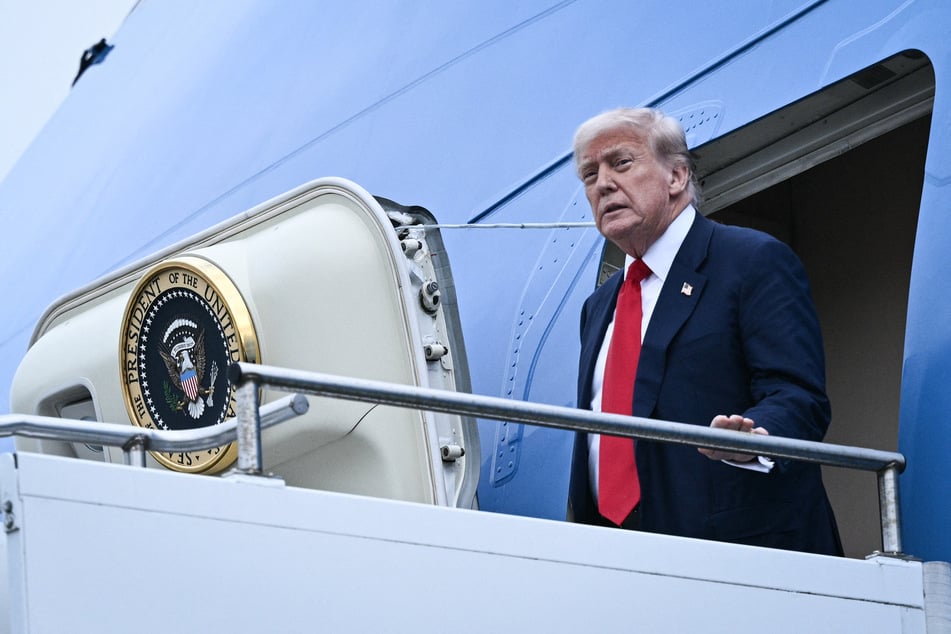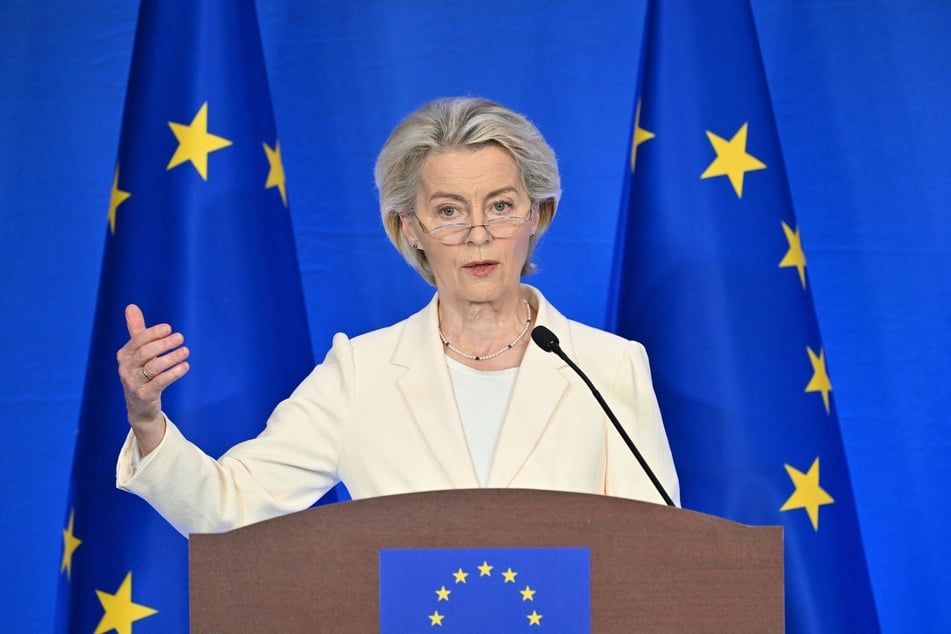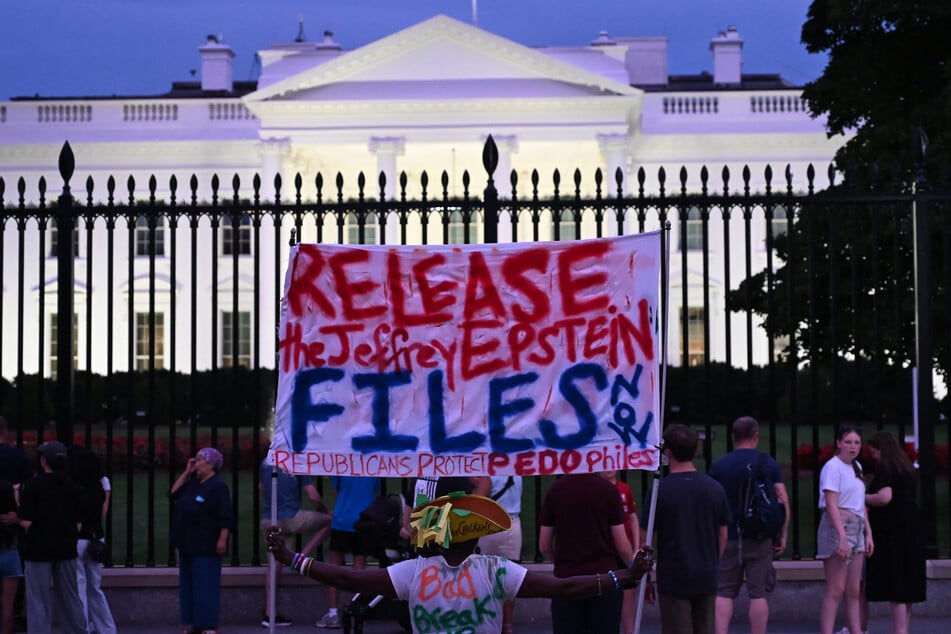Trump and EU chief seek deal in transatlantic tariffs standoff
Turnberry, UK - President Donald Trump and EU chief Ursula von der Leyen meet Sunday in Scotland in a decisive push to resolve a months-long transatlantic trade standoff – with the US leader putting the chances of a deal at one in two.

The clock is ticking with Trump vowing to hit dozens of countries with punitive tariffs unless they hammer out a pact with Washington by August 1 – with the EU facing an across-the-board levy of 30%.
Von der Leyen's European Commission, negotiating on behalf of the EU's 27 countries, has been pushing hard for a deal to salvage a trading relationship worth an annual 1.6 trillion euros ($1.9 trillion) in goods and services.
Brussels has coordinated closely with European capitals, whose diplomats are expected to meet swiftly to give their blessing to any deal struck at leader level – if indeed Trump and von der Leyen see eye to eye.
Sunday's sit-down will take place at 4:30 PM local time in Turnberry, on Scotland's southwestern coast, where Trump owns a luxury golf resort.
The 79-year-old said on arrival Friday he hoped to strike "the biggest deal of them all" with the EU.
Referring to von der Leyen simply as "Ursula," Trump praised her as "a highly respected woman" – a far cry from his erstwhile hostility in accusing the EU of existing to "screw" the US.
"I think we have a good 50-50 chance" of a deal, said the president – citing sticking points on "maybe 20 different things."
The European Commission said Thursday it believed a deal was "in reach."
EU prepares to retaliate in case of no Trump deal

According to European diplomats, the agreement on the table involves a baseline 15% levy on EU exports to the US – the same level secured by Japan – with carve-outs for critical sectors including aircraft, lumber, and spirits excluding wine.
The EU would also commit to ramp up purchases of US liquefied natural gas, as one of a series of investment pledges.
The European side was also hoping for a compromise on steel that could allow a certain quota to enter the US, with amounts beyond that taxed at 50%.
Hit by multiple waves of tariffs since Trump reclaimed the White House, the EU is currently subject to a 25% levy on cars, a 50% levy on steel and aluminum, and an across-the-board tariff of 10%, which Washington threatens to hike to 30% in a no-deal scenario.
The EU has focused on getting a deal with Washington to avoid sweeping tariffs from further harming its sluggish economy, with retaliation held out as a last resort.
Should talks fail, EU states have greenlit counter tariffs on $109 billion (93 billion euros) of US goods including aircraft and cars – to take effect in stages from August 7 – and Brussels is also drawing up a list of US services to potentially target.
Beyond that, countries like France say Brussels should not be afraid to deploy a so-called trade "bazooka" to restrict access to its market and public contracts – but that would mark a major escalation with Washington.
Trump embroiled in Jeffrey Epstein scandal

Since returning to power, Trump has embarked on a campaign to reshape US trade with the world.
But polls at home suggest the American public is unconvinced by his strategy, with a recent Gallup survey showing his approval rating at 37% – down 10 points from January.
Having promised "90 deals in 90 days," Trump's administration has so far unveiled five, including with Britain, Japan, and the Philippines.
In addition to bolstering his dealmaker credentials, a headline agreement with the EU could bring a welcome distraction from the scandal around Jeffrey Epstein, the wealthy financier accused of sex trafficking who died in prison in 2019 before facing trial.
In his heyday, Epstein was friends with Trump and others in the New York jet-set, but the president is now facing backlash from his own MAGA supporters demanding access to the case files.
Cover photo: Collage: Brendan SMIALOWSKI / AFP & ADEK BERRY / AFP

